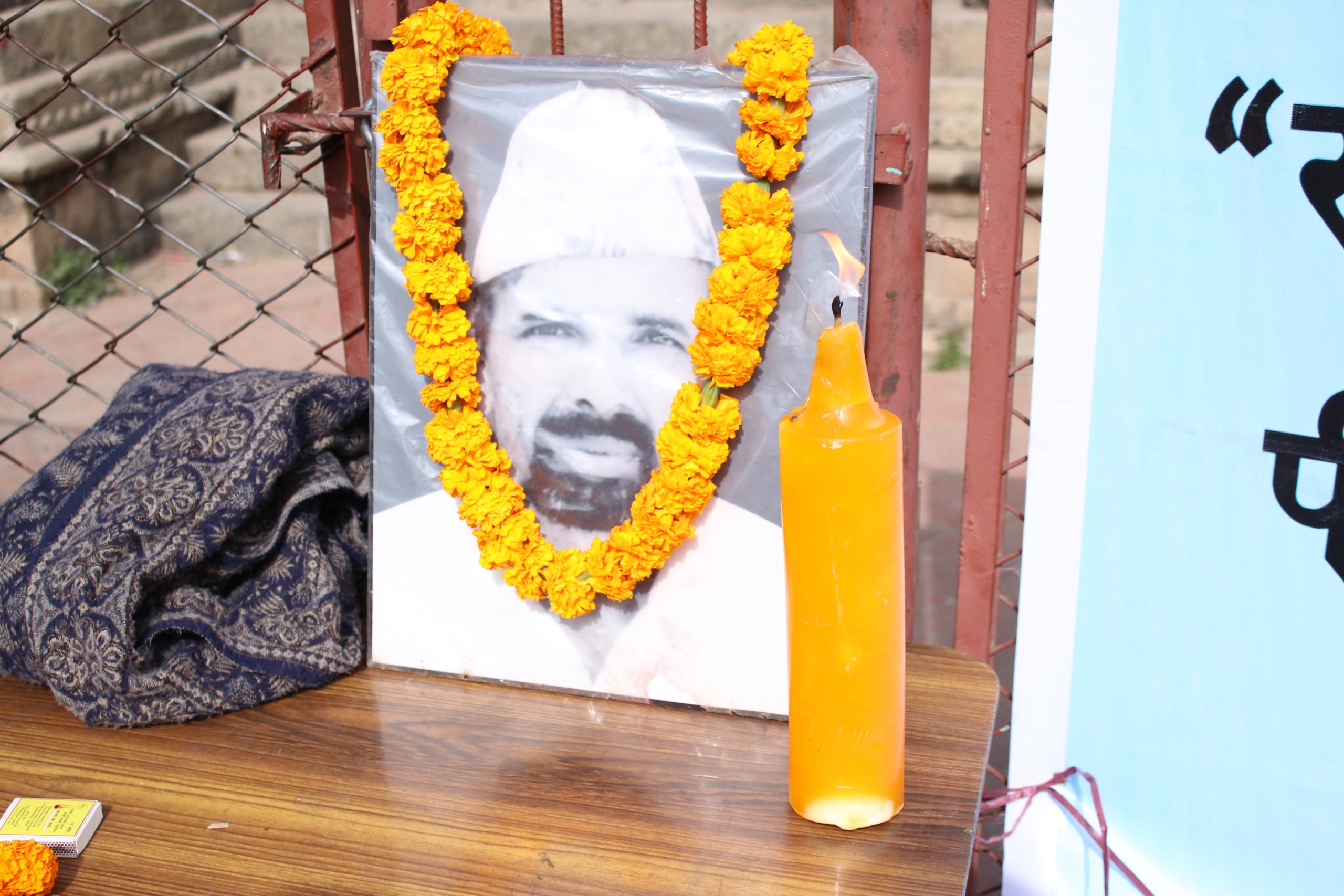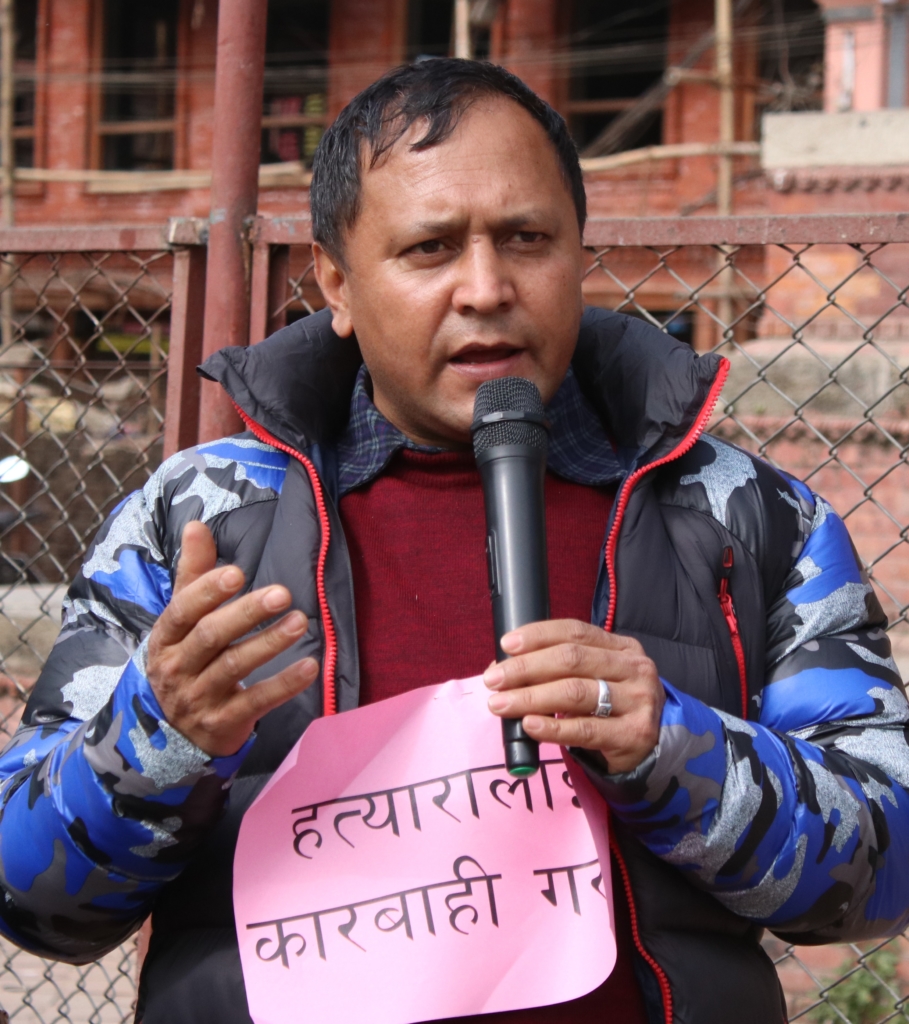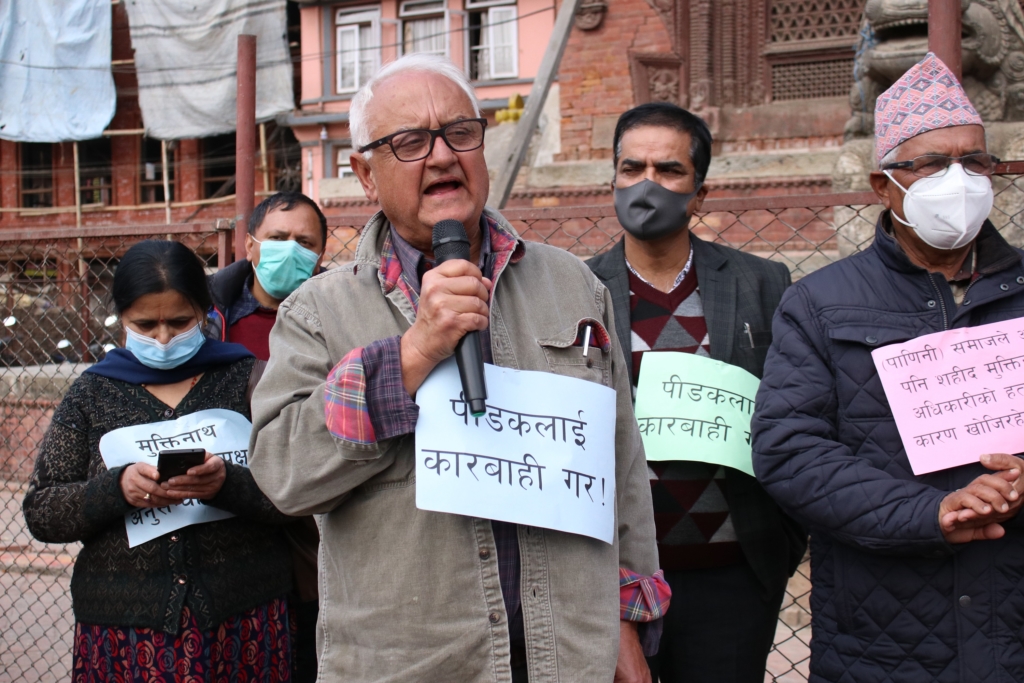16 January, 2021
Kathmandu
To mark the 19th anniversary of the killing of Muktinath Adhikari, Amnesty International Nepal in collaboration with Muktinath Adhikari Memorial Foundation organized a memorial program at Basantapur Durbar Square in Kathmandu today.
At the program attended by Adhikari’s family, representatives of conflict-victim organizations, rights activists, and journalists, many called out the state for its failure to deliver on its promise of truth, justice and reparations for victims of the decade-long conflict.

“Different governments have come and gone, but none have made sincere attempts to address the issue of transitional justice,” Dev Bahadur Maharjan, General Secretary of Conflict Victims Common Platform, said, adding, “Today is not just about demanding justice for Muktinath Adhikari or his family. It is about raising voice against impunity and holding those responsible for heinous crimes to account so that such incidents do not get repeated in the future.”
The program began with a candle lighting ceremony, followed by a poem recitation by Kalpana Adhikari, a former student of late Muktinath Adhikari. She recited a poem that she had written in her teacher’s memory after first hearing about his brutal killing.
“I couldn’t stop crying when I heard about his death,” she said.
Muktinath Adhikari, then the principal of Panini Sanskrit School, and coordinator of Amnesty Nepal Group-79, was killed by rebel forces in Lamjung on 17 January, 2002, for allegedly refusing to pay donations.
“At a time when it was difficult to freely express oneself, Muktinath sir was committed to providing education to his students and campaigning for human rights. He was a valuable member of the Amnesty movement in Nepal, and we see his killing as an attack on the work of all human rights defenders,” Nirajan Thapaliya, director of Amnesty Nepal, said.

At a time when it was difficult to freely express oneself, Muktinath sir was committed to providing education to his students and campaigning for human rights. He was a valuable member of the Amnesty movement in Nepal, and we see his killing as an attack on the work of all human rights defenders
Nirajan Thapaliya, Director, Amnesty International Nepal

Activist Kanak Mani Dixit urged those in attendance to keep their voices alive despite what may seem like a long road to attaining justice and accountability.
“Whether you number five or 2000, it is important that we never stop talking about this issue,” he said.
Whether you number five or 2000, it is important that we never stop talking about this issue.
Kanak Mani Dixit, Activist
Deepak Adhikari, treasurer of the Muktinath Memorial Foundation, thanked Amnesty Nepal for its continued support of conflict victims, and called on those present to stand in solidarity with victims.

